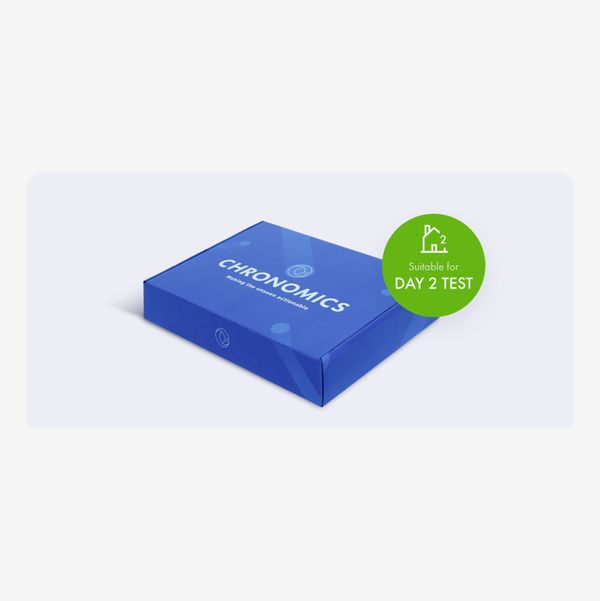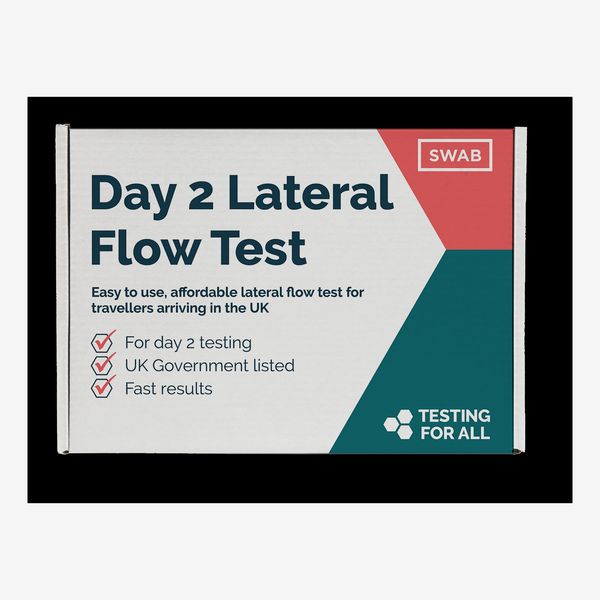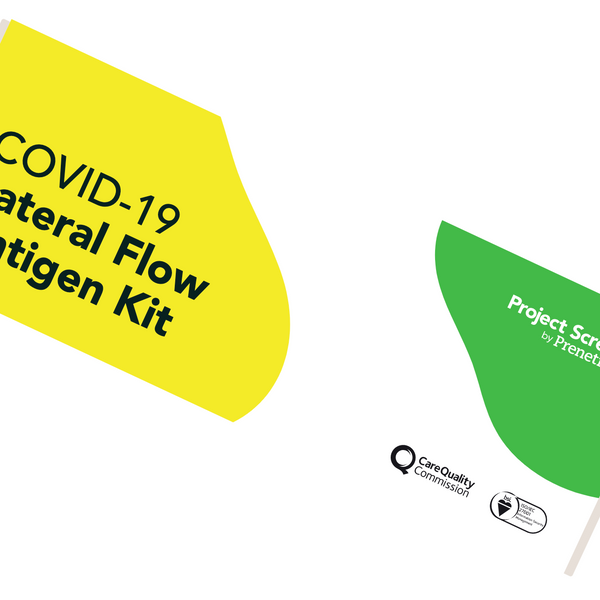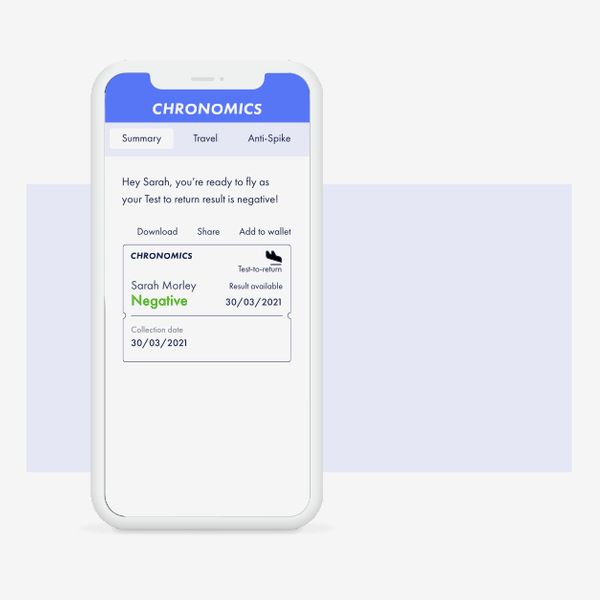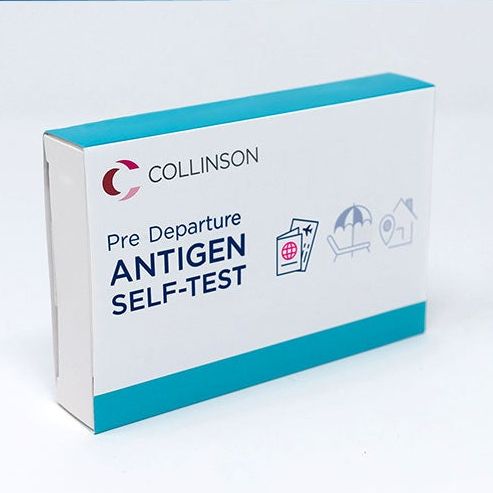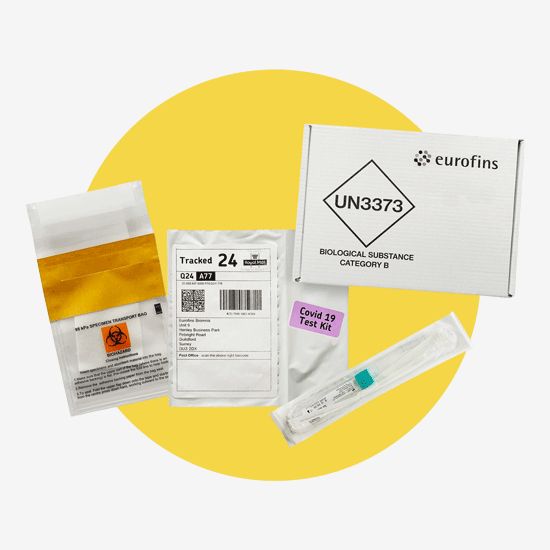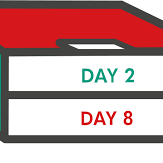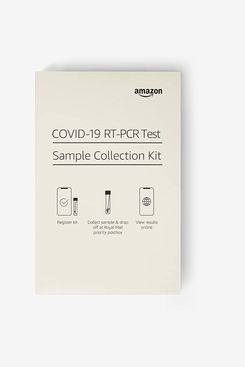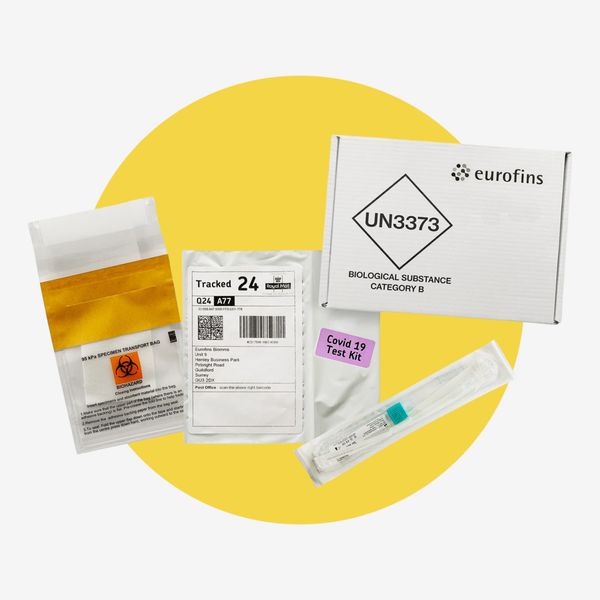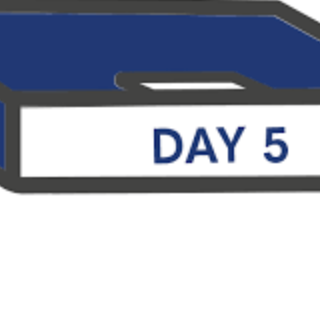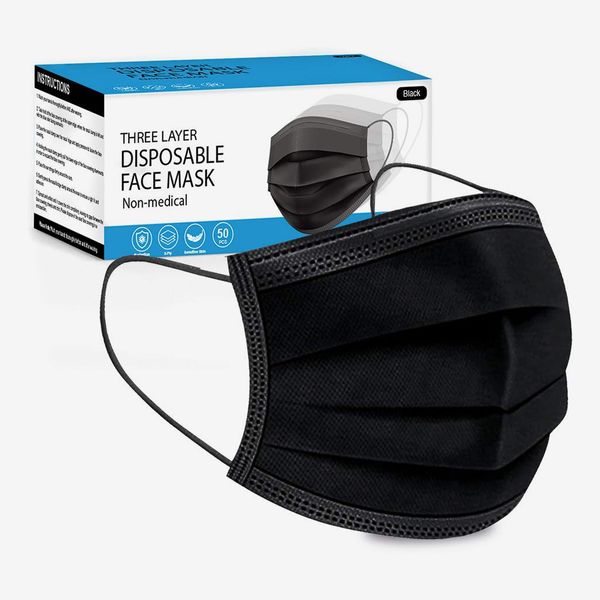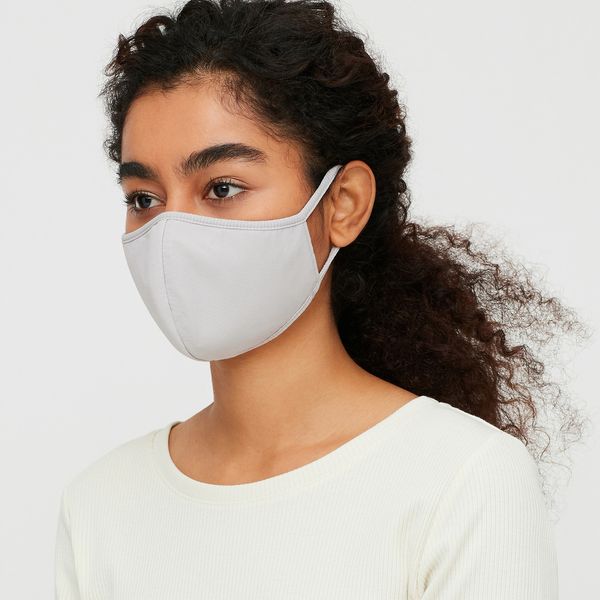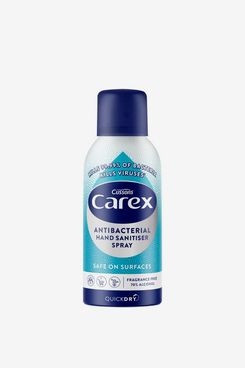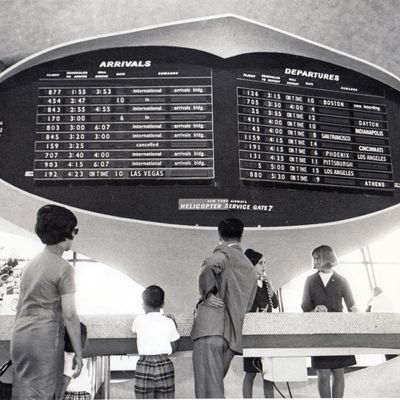
The rules around international travel have changed considerably with the emergence of the Omicron variant. When the international-travel restrictions were introduced in 2021, a negative PCR test and a “fit to fly” certificate (included with a negative test) were required to fly internationally from the UK with PCR tests also being required on days two and eight of your return. As of January 2022, however, the kind of tests you need to take will depend on your vaccination status. If you are fully vaccinated, you will need to take only a predeparture test if required by the country you are visiting (you can find up-to-date information on the government’s foreign-travel advice page). You will also need to take a test on day two of your return — this can be a cheaper lateral-flow test (also known as a rapid antigen test) rather than a PCR.
If you are not fully vaccinated, you will need to take a test no more than 48 hours before returning to the UK (whether this is a PCR or LFT will depend on where you are visiting). Unlike fully vaccinated travellers, you must self-isolate for ten days upon arrival and take PCR tests on days two and eight. Arrivals to England can take a day-five PCR test, which, if negative, allows you to end isolation early.
In England and Northern Ireland, you can book your PCR and lateral-flow tests via a number of private providers (lateral-flow tests are available for free on the NHS and in pharmacies, but you must pay for a test if you intend to use it to travel). The government has a directory of approved sites, but prices vary. In Scotland and Wales, your tests must be booked through the Corporate Travel Management Portal; prices start at £68.
All of which is to say there is a lot of information to parse even before you get on a plane. We spoke to expert travellers, health-care providers, and virologists to find out the best deals on PCR tests for travel, the best deals on lateral-flow tests for travel, and the best practice for taking an at-home test.
What is the difference between a PCR and a lateral-flow test?
Unlike lateral-flow tests, a PCR (or polymerase chain reaction) test must be processed in a lab and is more sensitive. “The chief difference between genetic tests such as PCR and quicker tests such as antigen tests is the sensitivity of the process,” explains Dr. Simon Worrell, global medical director at Collinson, the largest UK-airport COVID-19-test provider.
He says PCR tests are able to locate and amplify a tiny amount of the virus, making detection much easier. “It’s because of this amplification that PCR are able to detect positive samples — even if the patient has only been infected for two or three days, is uninfectious, or has no symptoms.” Because antigen tests don’t amplify the virus, they typically “become positive after a patient has had symptoms for a couple of days. This is often at least four days after a PCR test.”
There are several different types of PCR test — nasal swabs, throat swabs, and saliva tests — but all require a sample from the person travelling. “There are pros and cons of each,” says Worrell. “The nasopharyngeal sample is the very deep swab that goes through the nose. It provides a good sample but is uncomfortable, and passengers — especially ones that will need to be tested regularly — prefer other methods. A lower-nasal-swab sample, or one that includes a throat swab, is certainly better tolerated and can provide the same result.” Worrell says saliva samples have become more common over the past few months. This involves the patient spitting into a collection tube, which is sometimes preceded by swilling some fluid to aid dry mouths. Swab tests are generally quicker, he notes — “especially when performed by a medical professional” — but saliva tests are far more comfortable.
When looking for a PCR test, you should familiarise yourself with the requirements of the country you are visiting (they vary from country to country). But overall, when searching for a COVID-19 test for international travel, you should search for “fit to fly” lateral-flow or PCR tests. Again, be aware that different providers will have different requirements. Lloyds Pharmacy, for example, says it can issue a “fit to fly” certificate with your lateral-flow test only if you bring your passport with you when you get tested and if the country you are travelling to accepts results from lateral-flow tests.
Where can I book a PCR or lateral-flow test?
Tests can be booked at clinics (you can see a list of government-approved clinics here) or ordered to your home and administered yourself. However, Dr. Julian Tang, an honorary associate professor and clinical virologist at the University of Leicester, told the Strategist UK, “I would be very wary of people running PCR tests at home due to potential methodological and contamination issues. We don’t want households (or household waste) full of PCR-amplified SARS-CoV-2 products floating around in the community — it could be a disaster, giving rise to false-positive PCR results everywhere.” Worrell advises getting your test done by a professional: “It’s easy to make a mistake if you are not well-versed in science, so it’s important to ensure your test is in the hands of experts. Being swabbed by a professional in a clinic produces better results and reduces the risk that the swab will need to be repeated.”
There’s also the time-sensitive nature of getting your test booked and your results delivered before you fly. Emma Cooke, a travel writer (and Strategist contributor), flew frequently for work in 2021. She booked a PCR test at Harley Street Health Centre because “I didn’t trust myself to do the test at home as it’s very high stakes — I know a few people who’ve done at-home tests and had results come back inconclusive. If you mess it up and the test comes back inconclusive, you’ll either have to pay hundreds to get a 24-hour-turnaround test or just not be able to travel.”
Author Heidi Stephens travelled to Rotterdam for the Eurovision 2021 final and told Strategist UK she booked her PCR tests through privatecoronavirustests.com. “It sounds super-dodgy, but it’s listed as an official supplier on gov.uk,” she said. “I wasn’t confident that a home test would be reliable or quick enough, and I needed a test within 24 hours of departure.”
At time of writing, the gov.uk website has a directory of more than 900 COVID-19 testing sites, many of which offer PCR testing. This list includes nationwide and regional options, so prices may vary.
How do I take a PCR test at home?
Though most of the tests function more or less the same, the best place to find out how to take your test is by checking the instructions provided as some steps may differ slightly.
How much does a PCR or lateral-flow test cost?
Since we first started tracking the best deals on PCR and lateral-flow tests in May 2021, many companies have begun competing to offer the best deals to customers. We’ve scoured all the test options available and broken all of the tests down in order of priority based on the requirements needed for any traveller. This includes day-two lateral-flow tests for UK arrivals (as everyone needs to take these), predeparture tests for unvaccinated travellers, and day-two and day-eight tests for unvaccinated travellers. Finally, we’ve looked at the best day-five release tests for unvaccinated travellers, so you can select what you need based on the country’s requirements.
Like before, we haven’t included airport-based test options. Test costs at airports vary by location, and we reasoned it’s impossible for a customer to go to the cheapest airport to get the best deal. Compared to last year, however, the cost of getting tested at airports has lowered — it’s currently between £29 to £40, depending on your airport. Unsurprisingly, the prices of PCR tests via airline deals were pretty consistent.
Best day-two lateral-flow tests for UK arrivals
Chronomics was the best-value LFT test we saw online. The cheapest option is the £10 click-and-collect option, though pickup is only available at South Wimbledon and Gatwick Airport. Alternatively, a priority-postage LFT kit costs £13 and will be posted to you based on your arrival date. The test results will display within 30 minutes, according to Chronomics; it also offers a “fit to fly” LFT test for £15, which should be ordered at least five days before your outbound travel.
After Chronomics, the best LFT deals we found were around the £17 mark (both through airline discounts and otherwise). This kit by Testing for All costs £17 and, unlike the Chronomics test, is validated by the company itself (users submit a photo of the test, and Testing for All says it provides a “fit to fly” certificate within five hours). This test is not suitable for test for release, however; we have outlined the best deals on those at the end of this article.
Project Screen’s LFT tests are £19 as standard, but you can get them for £17 if you are a Virgin Airlines customer (the discount is automatic and will be applied at checkout) or if you click and collect, which can be done at 25 locations. Project Screen provides test verification, like Testing for All, but the turnaround is slightly slower, at 12 hours.
Best predeparture LFT tests
If you are not fully vaccinated, you will need to take a lateral-flow test no more than 48 hours before departure back to the UK. Depending on where you are travelling to, you may be able to pick up a lateral-flow test from a local pharmacy before you return. Alternatively, you can order one to take with you. We compared the prices of the seven leading test providers, and here are the best options. Unlike last year, we noticed many of the airline discounts are not as impressive now, with many offering as little as £0.95p discount for passengers. As a result, we’ve taken into account factors such as turnaround time when looking at the best options.
Project Screen is the best predeparture test on offer because of its combination of price and speed. It costs £19 full price (but £17 for Virgin Atlantic customers), and it says results come back within 20 minutes of submitting your result (comparatively, test provider C19 charges £22 and can only guarantee results within 12 hours).
Chronomics offers tests for £19 and provides results within three hours, while Collinson offers results for around the same price in two hours.
Best day-two and day-eight PCR tests
We looked at tests offered by eight different companies, and we were surprised at the jump in prices among them. The most expensive was Boots, where a day-two and day-eight test kit costs £136 with results coming in 24 to 48 hours. (Testing for All, by comparison, has the same results window, but tests cost just £89.)
Eurofins offers a guaranteed 24-hour window for your results for £99, while Randox, through its click-and-collect process, offers the same tests for £70 (it says it can guarantee results by “11.59pm the day after returning your test to a drop box”).
If you don’t wish to click and collect, Randox has the most discount codes from airlines, bringing its standard £96 test down to £86.
[Editor’s note: We found a total of 12 discount codes for these day-two and day-eight tests including for Air France (AirFrance), British Airways (BritishAirways43), EasyJet (easyjet2021), Jet2 (Test21), and Ryanair (FLYRYANAIR).]
We noticed Amazon has been offering notably cheap tests including day-two and day-eight kits for £64 — although these sell out quickly.
Best day-five “test to release” PCR tests
Like the tests we have featured already, many of the best discounts are location-exclusive (for example, Randox Health has test centers at Liverpool, Manchester, and East Midlands airports, costing £55, while Collinson’s tests, at Heathrow and St. Pancras Station, cost £95 full price and £76 with a discount code). In-person tests are priced such because they reportedly offer quicker results, but we found home-testing kits that cost less than this and offer the same delivery window (though processing time is measured based on the company receiving your test, not the day you post it).
Eurofins’ at-home test-to-release kit costs £44, and it says it can deliver results within 24 hours of the test being received by the lab.
Randox’s at-home test-to-release kit, meanwhile, costs £48 full price (or £43 with an airline discount code — all of the above codes should work), and results come “by 11.59pm the day after returning your test to a drop box.”
Some other travel essentials
No matter where you’re travelling, you’ll need a face mask. These disposable black ones are featured in our comprehensive guide to face masks as worn by Strategist staff.
If you’re considering reusable masks, we found these Uniqlo ones to be both a good value and supremely comfy.
You’ll also need a hand sanitiser. This unscented aerosol sanitiser by Carex is just as good on surfaces as it is on your hands, so it might be a good option for spraying on all the things you come into contact with while flying. We found sanitisers for every type of person should you want something different.
The Strategist UK is designed to surface the most useful, expert recommendations for things to buy across the vast e-commerce landscape. Read about who we are and what we do here. Our editors update links when possible, but note that deals can expire and all prices are subject to change.
